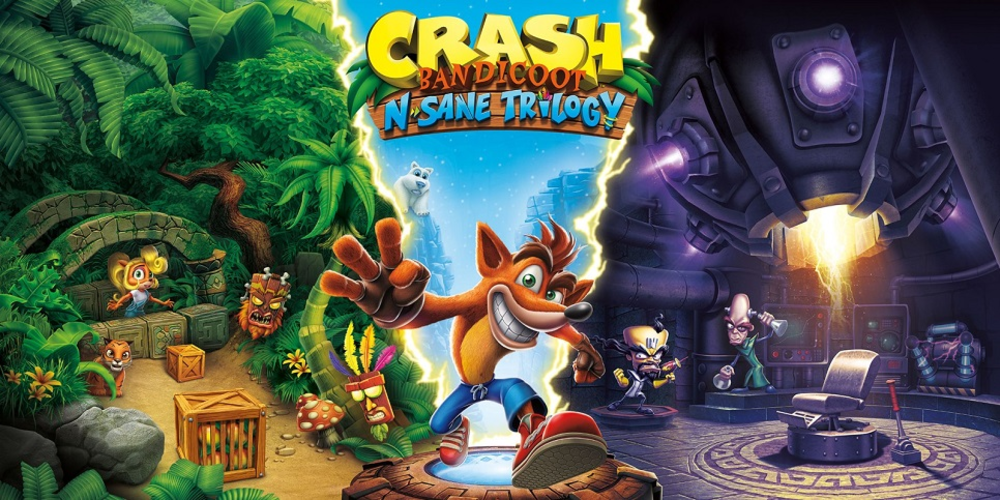Reviving Timeless Treasures: The Art of Modernizing Classic Games for Today's Market
- 67

Over the past few years, the video game industry has seen a significant resurgence of classic titles, reimagined and polished for contemporary audiences. The trend of remastering beloved classics isn't merely a trip down memory lane; it's a strategic move to capitalize on the nostalgia of older gamers while simultaneously introducing these timeless stories and mechanics to a new generation. These premium remasters and reincarnations often come equipped with upgraded visuals and refined gameplay, aiming to strike a delicate balance between retaining the original's charm and adhering to modern standards of gaming. This article delves into this growing segment, exploring several popular remasters that have redefined our expectations and expanded the reach of iconic gaming experiences.
The Renaissance of Gaming Icons
Remasters of classic games are more than just spruced-up versions; they are complete overhauls that breathe new life into the originals. These updates often include high-definition graphics, reworked controls, and sometimes even additional content, all while preserving the essence that made these games memorable. The premium segment is particularly intriguing, as it caters to both the discerning tastes of veteran players and the high expectations of newcomers.
Final Fantasy VII Remake: Rebuilding a Legend

Final Fantasy VII Remake stands as a paragon of how to reimagine a classic. Square Enix took a bold step with this title, transforming the original turn-based combat into a dynamic, real-time system and expanding the story to delve deeper into the game's iconic world and characters. Improved voice acting and a cinematic presentation have turned this classic JRPG into a contemporary masterpiece that honors its roots while setting a new standard for remasters.
The Legend of Zelda: Link's Awakening - A Dream Revisited
Nintendo's approach with The Legend of Zelda: Link's Awakening for the Switch was to retain the game's original top-down perspective and fundamental gameplay while completely overhauling the visual style with charming, toy-like graphics. This not only preserved the game's whimsical spirit but also made it accessible and appealing to a younger audience. By keeping the core mechanics intact, the game remains a testament to the timeless quality of the Zelda franchise.
Resident Evil 2: A Masterclass in Horror Reinvention
Capcom's Resident Evil 2 remake is a standout example of how to modernize a horror classic. By shifting from the original's fixed camera angles to an over-the-shoulder perspective, the game heightens the tension and modernizes gameplay without losing the original's claustrophobic atmosphere. Enhanced visuals and audio contribute to a more immersive and terrifying experience, proving that a well-executed remaster can re-establish a game's relevance in today's market.
Crash Bandicoot N. Sane Trilogy: A Platforming Gem Polished for the Modern Era

The Crash Bandicoot N. Sane Trilogy takes the zany energy of the original PlayStation games and gives them a fresh coat of paint. Vivid colors and a reimagined soundtrack make these platformers feel brand new, while quality-of-life improvements and unified game mechanics across the trilogy offer a smoother experience for players. This series demonstrates how keeping the essence of the gameplay while enhancing the presentation can hit the sweet spot for both loyal fans and newcomers.
Spyro Reignited Trilogy: Reigniting the Flame of Adventure
Similarly, the Spyro Reignited Trilogy takes the adorable dragon on a reimagined journey through rich, vibrant landscapes. The updated graphics and re-recorded music breathe fresh life into the character's whimsical adventures, with gameplay mechanics tweaked to align with modern expectations. The Reignited Trilogy showcases how a visual and auditory overhaul can make a classic platformer feel contemporary and enticing.
The Implications of Remastered Classics
Remastering classic games has multiple implications for the industry. First, it extends the lifespan of these games, ensuring that they continue to generate revenue and remain relevant in an ever-evolving market. Second, it introduces these titles to younger players who might not have the means to experience the originals, thus expanding the fan base and creating new brand ambassadors. Lastly, it allows developers to experiment with new technologies and creative directions, using the safety net of an established franchise to mitigate risks.
Statistical Success and the Future of Remasters

The financial success of these remasters is not to be overlooked. Many have outperformed their initial releases, proving that there is a substantial market for premium renditions of classic games. As technology continues to advance, we can expect to see even more sophisticated remasters that push the boundaries of what we thought possible with these beloved titles.
Conclusion: A Legacy Preserved and Propagated
In conclusion, the remastering of classic games in the premium segment is a trend that respects the legacy of the originals while ensuring their continued relevance. By striking the right balance between innovation and preservation, developers have found a formula that satisfies the nostalgic cravings of older fans and the high standards of new players. As we look to the future, the anticipation for what classic will next be reborn keeps the industry and its audience in a constant state of excited speculation.